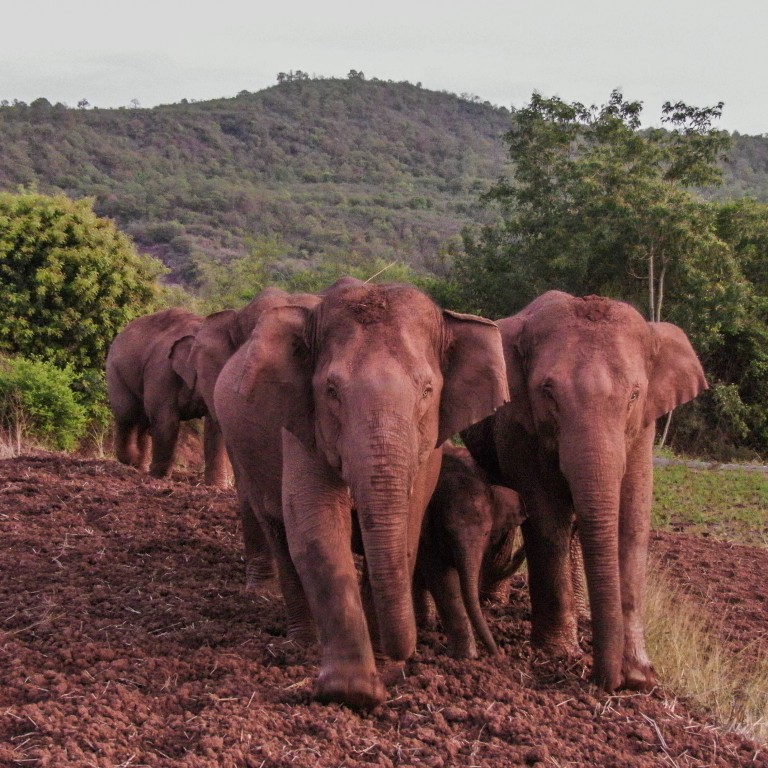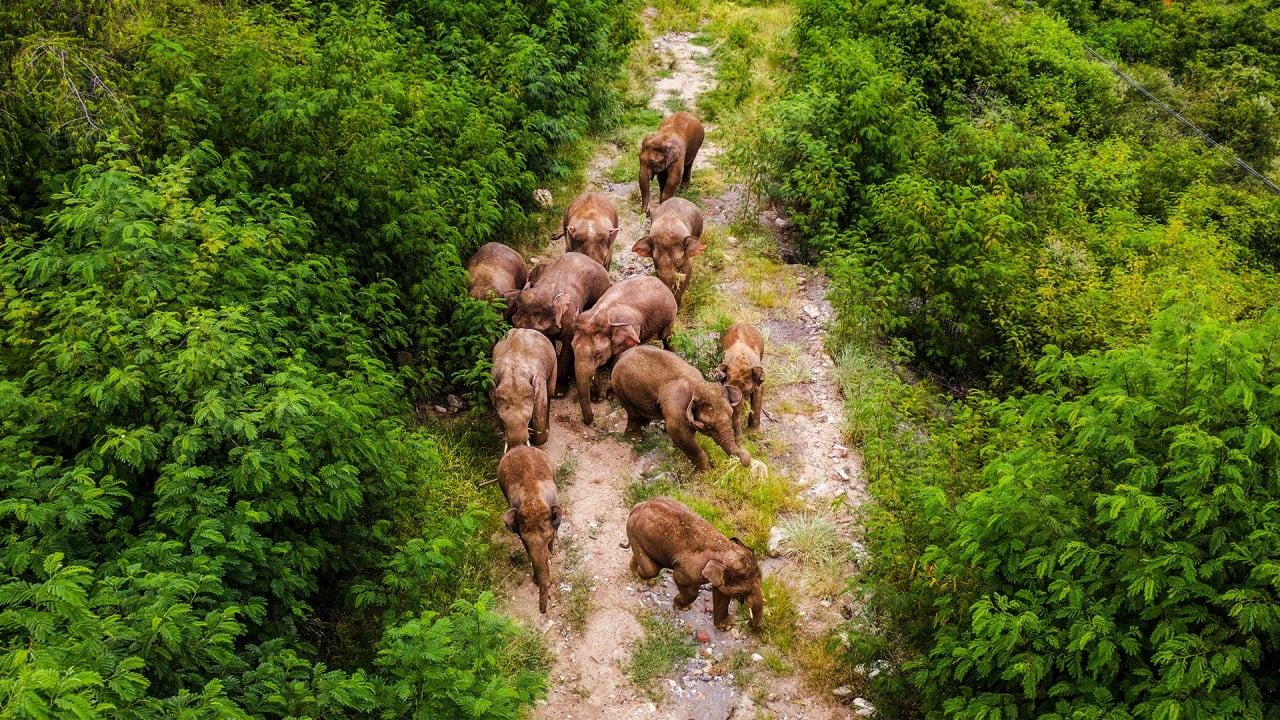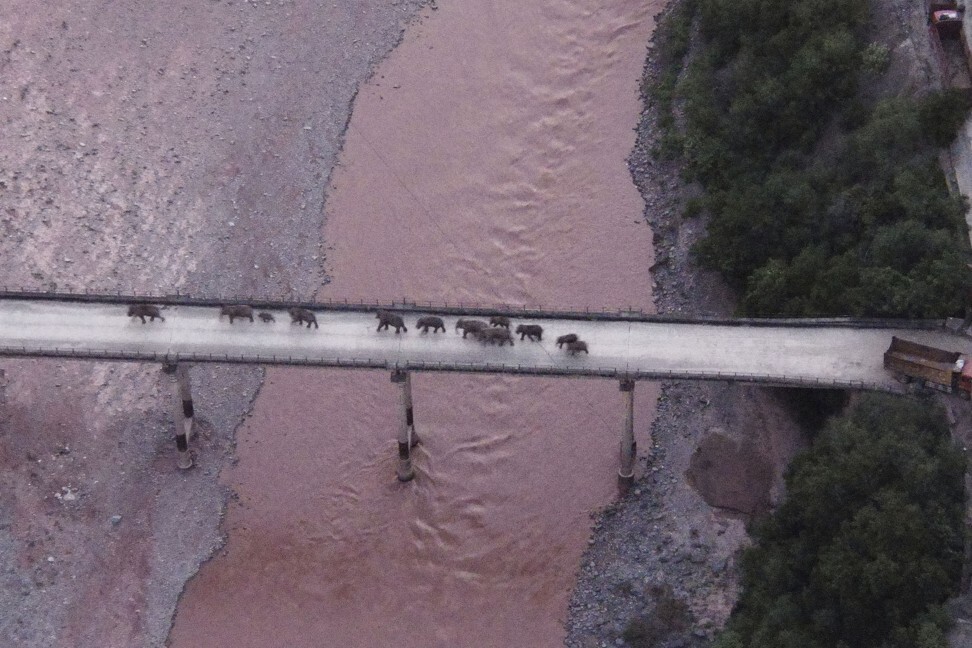
Chinese city in Yunnan builds ‘food court’ for future migrating Asian elephants
- The 670,000 square metre area will be stocked with food such as bananas and saltwater ponds
- The food base was built after a herd of elephants trekked 500km this summer, causing headaches along the way
The Global Times reported that the idea for the 670,000 square metre food base near Jinghong, in Yunnan province, came after the herd of 15 — originally 17 — elephants left their habitat earlier this year and reached the outskirts of the provincial capital Kunming in June, after a 500km journey.
The area is stocked with food that elephants typically enjoy, such as 38,000 banana trees and saltwater ponds so the animals could get the minerals they require as part of their diet.

01:28
China’s famous herd of wandering elephants heads home after months-long trek
“The project is meant to improve the quality of Asian elephants’ habitat, enrich their food sources and provide them with more to eat,” Cha Wei, an official from the Jinghong’s forestry and grassland bureau, told China Daily.
“After the completion of the project, elephants will be able to eat at the base. This can stop them from foraging in villages and damaging farmers’ crops,” he said.
The base is spread across three different townships in Yunnan. As for the travelling herd, the 15 elephants are currently being guided back towards their home turf.

It is unclear what happened to the other member of the original 17 as local media reports frequently calculated the herd’s size from anywhere between 14 to 17 individuals at various times.

Chinese social and mainstream media were captivated by the elephants as they roamed across the province, and drone and smartphone footage spread quickly online, such as when they were filmed lying down and napping.
The Asian elephant is listed as an endangered species by the International Union for Conservation of Nature’s Red List. They have grade one protection status in China. The area surrounding Jinghong is home to about 185 elephants that eat about 200kg of food every day.

